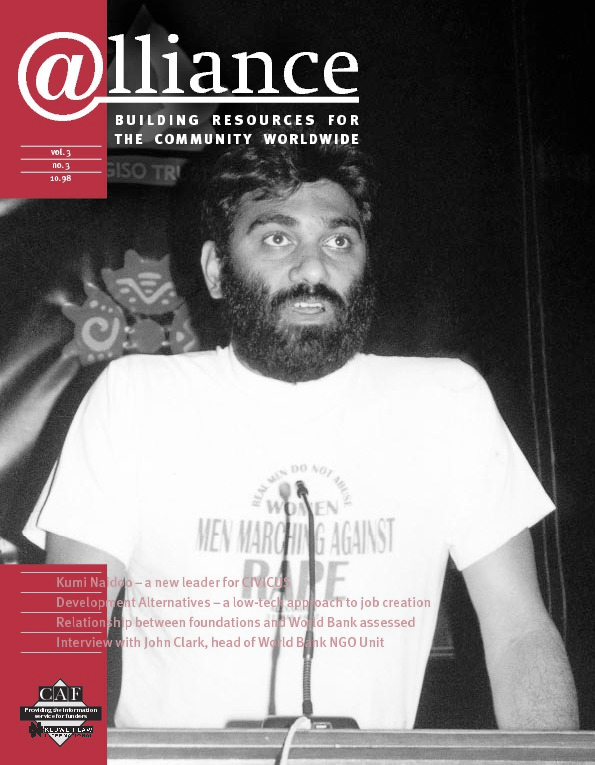A unique initiative is under way in the Philippines to establish an NGO accreditation mechanism largely run by NGOs themselves that will be recognized by the government for the purposes of allowing tax deductions.
The impetus for this potentially radical change in the regulatory and fiscal oversight of NGO was a proposed revision in the tax law. The Philippines has one of the worst tax collection rates in Asia. Out of a population of 70 million people, only about 1 million individuals pay income tax. Several years ago, the Philippine government drafted a new law to close the tax loopholes.
NGOs used as tax shelters
One of the loopholes identified was NGOs being used as tax shelters for family-owned corporations. Currently, corporations are allowed to deduct from their taxable income charitable donations of up to 3 per cent of net pre-tax income. At the root of the problem, which the government willingly admitted, is government’s inability to distinguish legitimate and tax-shelter NGOs.
To reduce the potential for abuse, the government proposed to restrict the scope of projects eligible for tax-deductible donations and allow them only to government disaster-relief projects. The proposed law would undoubtedly have severely affected corporate foundations, and all organizations receiving tax-deductible donations from corporations, which are involved in a broad range of projects such as education, community development, the environment, livelihood projects and microcredit.
In response, several NGOs, including the Philippine Business for Social Progress, the League of Corporate Foundations, the Association of Foundations and the Caucus for Development NGOs, began negotiations with government officials. Discussions focused on the dual aims of:
- retaining the tax deductions for corporate donations to legitimate NGOs and
- assisting government in monitoring NGOs.
The outcome was a memorandum of agreement between the Department of Finance and the Philippine Council for NGO Certification. This Council, governed by a board of NGO representatives and an official from the Bureau of Internal Revenue, will evaluate NGOs using rigorous financial and programme-related criteria. The Bureau of Internal Revenue has agreed to recognize the evaluation.
While the tax law was passed this year, the administrative rules and regulations required to implement it are still pending. It is hoped that this historic public-private partnership will be under way soon.






Comments (0)